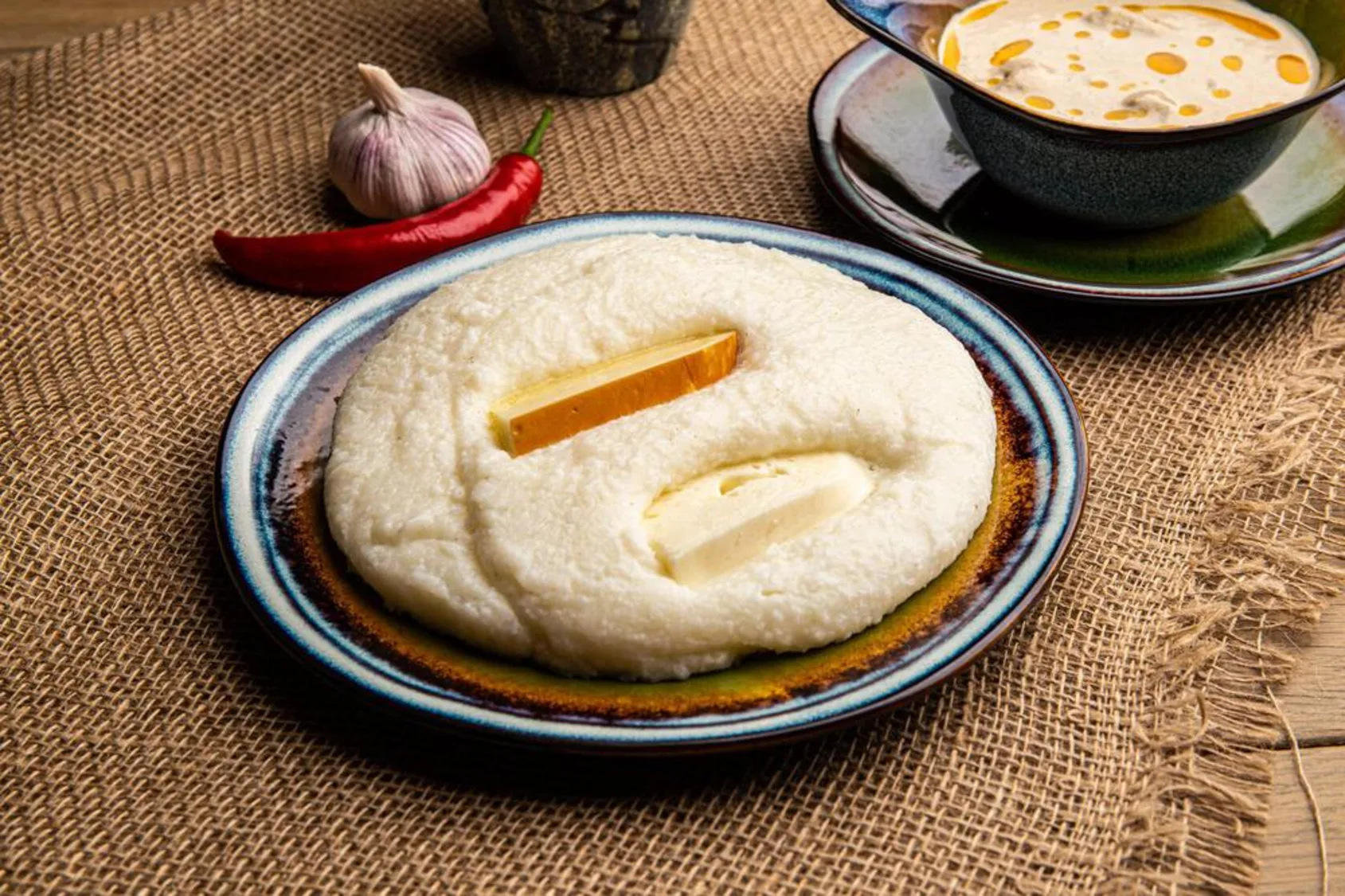
Ghomi
A traditional cornmeal porridge from western Georgia, often served with Georgian cheese.
Ingredients
- •Cornmeal
- •Cornflour
- •Water
- •Salt
- •Georgian cheese
Instructions
Cook cornmeal
Gradually add cornmeal to boiling water, stirring constantly.
Finish dish
Add cornflour and continue cooking until thick.
Ghomi is a beloved traditional Georgian dish that originates from the western regions of the country, particularly Samegrelo and Abkhazia. This hearty cornmeal porridge has been a staple of Georgian cuisine for centuries, serving as a delicious alternative to bread and providing sustenance to generations of families.
The preparation of Ghomi is an art that requires patience and technique. The dish starts with a base of white cornmeal slowly cooked in water until it reaches a thick, smooth consistency. What makes Ghomi unique is the addition of cornflour in the later stages of cooking, which gives it its characteristic texture - firm enough to be shaped but still creamy and comforting. The process involves constant stirring to prevent lumps from forming and achieve the perfect consistency.
In traditional Georgian households, Ghomi is almost always served with Georgian cheese, typically Sulguni, which adds a salty, stretchy element to the dish. The hot Ghomi is often shaped into a dome or mound, with a well in the center filled with melting cheese. Some variations include serving it with local cheese curds or Adjarian cheese, each bringing its own unique character to the dish.
Modern interpretations of Ghomi have emerged, with some cooks adding butter for richness or herbs for additional flavor. Some regions serve it with bazhe (walnut sauce) or incorporate it into other dishes. However, purists prefer the classic combination of Ghomi and cheese, celebrating its simplicity and traditional roots.
From a nutritional standpoint, Ghomi is a substantial dish rich in complex carbohydrates, making it an excellent source of energy. A typical serving contains approximately 300-350 calories, primarily from the cornmeal. The addition of cheese provides protein and calcium, though it also increases the fat content. The dish is naturally gluten-free, making it suitable for those with celiac disease or gluten sensitivity. However, those watching their caloric intake should be mindful of portion sizes, particularly when enjoyed with the traditional generous amounts of cheese.
